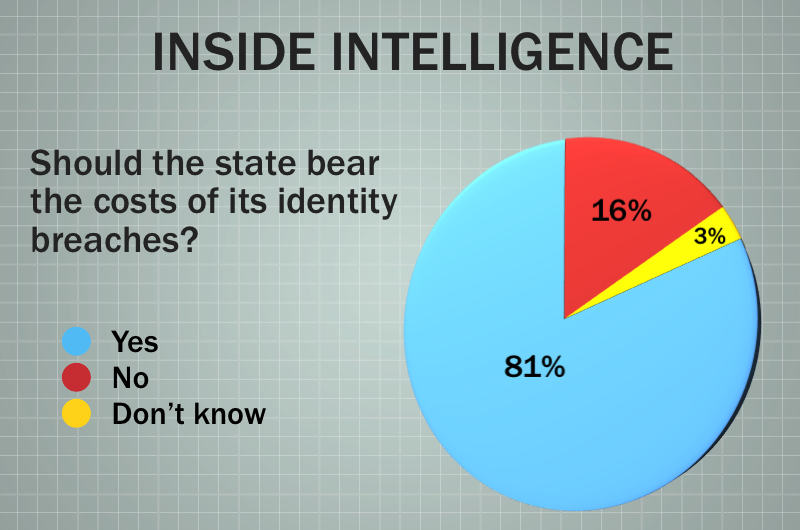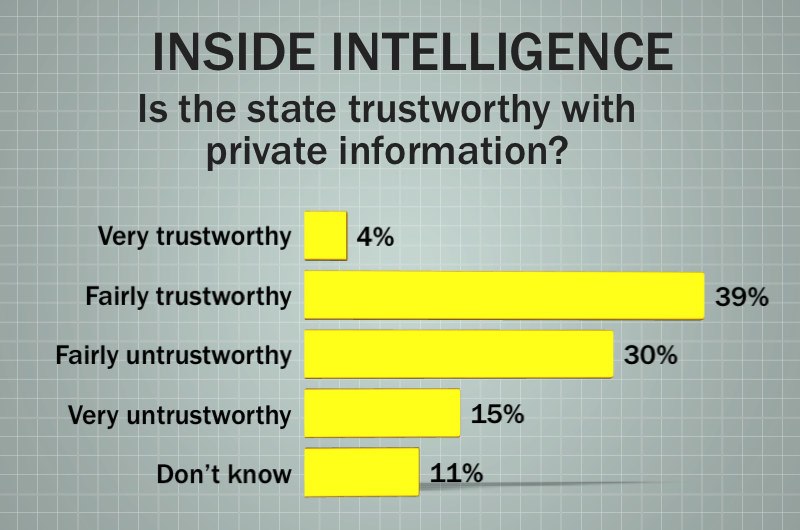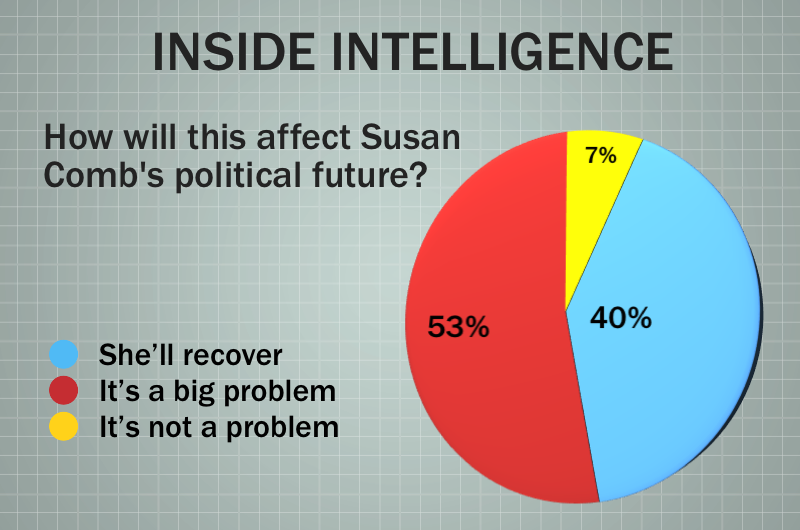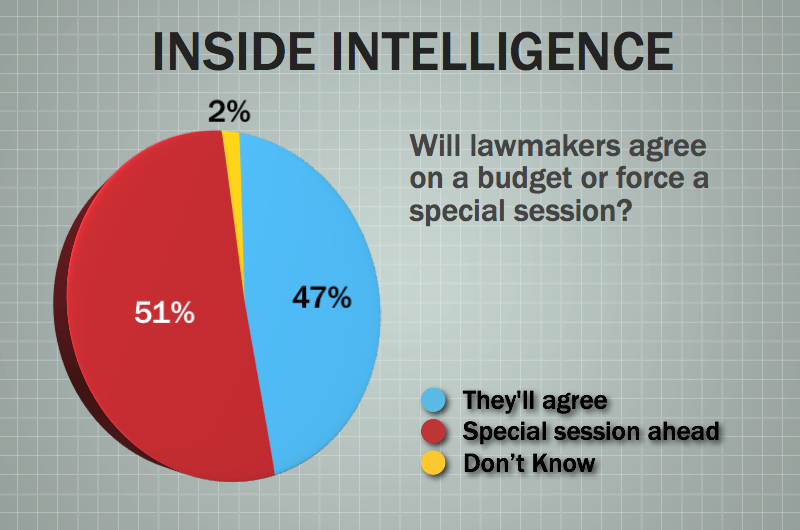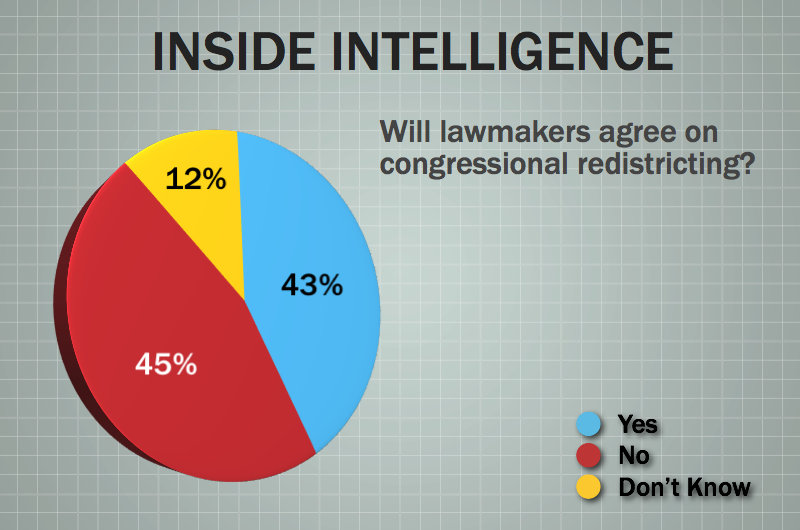It's a misleading headline; they've been serious. But this was the week with redistricting on the floor of the House and no budget on the floor of the Senate. Redistricting is often a noisy and bloody affair, and this might be a case when the availability of information took the sting out of the fight. Not so long ago, redistricting maps and data were closely held until the big reveal on the House floor. Members got to see pieces of the maps — their own districts and some of their neighbors' — but it wasn't unusual to see politicians in near cardiac condition when the maps were put on the easels for the first time and they got a peek at the whole state.
Now, they've got this stuff in their computers. They've already fiddled with the maps and the numbers by the time they get to the floor, suffering the surprises and indignities of new maps in the privacy of their own offices. It's still fighting material — this is politics as a board game and their careers and power flows from these old and new political bases — but the conversation has actually been sort of civil.
They weren't speedy, but the House has now voted out a redistricting map. That's a big deal, as this will serve as the starting point for anyone who wants to tinker, whether that turns out to be the five Texas Republicans on the Legislative Redistricting Board or the Justice Department or the federal courts or some combination of the three. This is the map they actually voted out, and that counts for something.
The Senate is waiting. Redistricting is stuck behind the budget, intentionally, and might soon be the only trade bait left. The math hasn't changed from last week's edition, but the nerves are more frayed now. It's one of those Senate Things: Either they're on the verge of a campfire session with S'mores and Kumbaya and ghost stories, or they're going to war. They could get 21 votes and knock it out of here or lock up and fling partisan darts at each other.
The source of money is the barb here. The Senate Republicans and enough Democrats are ready to spend the available money. Including a contingent grab at the Rainy Day Fund, however, gives some conservatives the willies. Cutting the budget further loses Democrats.
Watch for funny bounces. It's a good time to be looking for other ways to replace the $3 billion in RDF money that's in the Senate proposal. Lt. Gov. David Dewhurst, when he's not providing fodder for angry Senate caucus meetings, keeps trying to attract interest for what he likes to call non-tax revenues. Think instead of non-RDF revenues and some big items are sitting there on the list: squeezing another half billion out of the Permanent School Fund, killing the high-cost natural gas extension, and Steve Ogden's proposal to go back to the old business franchise tax, only with non-corporate businesses included this time. And there's always gaming.
The budget thing will work out, now or in special session, when the choice comes down to two or three options; a binary choice between a particular source of money and a particular program, or a ternary choice between a dear program and one kind of funding or another.
In years past, lawmakers sometimes avoided these rumbles with contingent appropriations. Many budgeteers believe Comptroller Susan Combs is being unnecessarily conservative with her estimates of how much the state will bring in. That Rainy Day bit in the Senate budget draws first on money that becomes available — code for a better estimate from Combs — and only gets into savings if the treasury doesn't fatten.
Another way to do it is to write a list of contingent appropriations that are funded, one by one, if and when the money becomes available. The advantage is that it encourages the Comptroller to act like the cavalry, "finding" the money and funding the programs. The downside for lawmakers is that it gives comptrollers the ability to take the political credit for whatever programs they find the money to fund. Bob Bullock took full advantage of it, as did John Sharp. Lawmakers were so peeved about the grandstanding that they stopped the practice.
Inside Intelligence: Combing the Data
This week, we asked the insiders about the fallout from the data breach at the state comptroller's office, where 3.5 million names in a database were left unprotected on the agency's website for a year. The names, along with social security numbers and other information, came to the comptroller from the teacher and employee retirement systems and from the Texas Workforce Commission. Comptroller Susan Combs stayed in bunker mode for more than two weeks; as our survey was ending, she began a series of media interviews and mea culpas, apologizing and explaining how the breach happened and what she's doing about it.
An overwhelming majority of our insiders — 81 percent — say the state should bear whatever costs the people on those lists incur as a result of identity theft that results from the agency's blunder; 16 percent said it shouldn't. They're split pretty evenly when asked whether the state can be trusted with private information. And a small majority of 53 percent believes this is a big political problem for Combs; 40 percent think it will blow over.
The full set of comments is at this link, but here's a sampling:
Should the state pay the expenses and cover the losses of people whose identities are stolen as a result of the breach?
• "The state does not have the money to pay these losses."
• "It's an absolute travesty, not only that this information has been exposed, but how it's been handled. I've never seen such finger pointing and attempts to scapegoat so many other agencies and staff. It just perpetuates great distrust in government."
• "The state is liable so yes within reason"
• "State's fault? State pays."
• "If American Express did the same thing, they would have to cover my expenses."
• "Yes the state should assist those affected - the data was available for one year. Stolen identity is a serious issue - expensive and lengthy to resolve. These individuals are required to submit the most sensitive information to governmental entities that guarantee their information is safe and secure."
• "Pottery Barn principal applies. If the State of Texas broke it, we need to pay to fix it."
How trustworthy is the state government with private information?
• "Mistakes happen."
• "I think having to answer 'don't know' is pretty scary."
• "Painfully obvious now that they are/were not trustworthy."
• "This is an isolated incident by someone asleep at the switch."
• "As trustworthy as Facebook, Google Chrome and Amazon. And apparently more trustworthy than the Defense Department's top secret Guantanamo Bay files."
• "Real and possible breaches are becoming increasingly common, but in fairness it's not just state government that seems to be unable to secure the data it collects."
• "The tragedy of this debacle is the distraction it creates for proposed improvements to other critical state databases. For example, Texas is finally discussing reforming the state's costly and outdated 'opt-in' immunization registry. Even though proposals will increase privacy and save the state money, progress has been slowed by this story."
• "Humans are humans and mistakes will be made. It's amazing this hasn't happened before."
How will this affect Comptroller Susan Combs' political aspirations?
• "It demonstrates a lack of proper management and oversight."
• "She angered just about everyone across the political spectrum. The fall-out from this is just beginning. Wait until more and more people are touched by identity theft."
• "Compounds problems with the appliance rebate program (twice), lack of progress on ERP, lack of popularity of Formula One deal and of course missing the revenue estimate. ... Makes it harder for her to run for Lt. Governor."
• "If the Governor never even had a scratch on him from the Gardasil flap, then the tall lady won't see a scar over this."
• "She was well positioned to move up to Lt. Gov., but she is not quick on her political feet, so she has not gotten out in front of this. She looked very uncertain and defensive. She has time to recover if she has the skill."
• "Stick the proverbial fork in her. She's done. This problem will linger and the bumbling way she handled will make great political ads."
• "People forget -- over and over and over again. This is occurring too far from an election to ruin her career. But she will be beat over the head with it for years to come."
• "It helps her that the victims are state employees and teachers, who are 1) not natural Combs supporters anyway, and 2) not the focus of a lot of care and compassion from other voters. If these were taxpayers, her career would be in real danger."
• "She's toast."
Not the Teachers' Pet
For legislation whose purported intent is to save teacher jobs, House Bill 400 is facing a hard fight from the associations charged with representing them. Groups like the Texas Association of Professional Educators and the American Federation of Teachers have come out swinging against the bill, which makes significant changes to the state's contracting and salary requirements for educators.
That's because it does away with many state laws that they have regarded as key safeguards.
It contains provisions that eliminate the minimum experienced-based salary schedule for teachers and other school employees like nurses and librarians, and replaces it with one based on performance measures like test scores and teacher evaluations. It changes notification procedures for contract non-renewals, and authorizes unpaid furloughs and makes it easier for districts to declare financial exigency, which also gives school boards more leeway in laying off employees. On top of all that, it eliminates the 27-year-old 22-to-1 student-teacher ratio in kindergarten through fourth grade, something teachers say will make it much more difficult for them to do their jobs.
The main beef the unions have with the legislation is that it permanently lifts all these provisions — even though they view the budget crisis as temporary. Rep. Rob Eissler, R-The Woodlands, who introduced the bill, said that it provides school districts with the flexibility they need to reduce staff, but also to keep the best-performing teachers. Lifting the class size ratio in particular, he says, will save money that could then go to pay teacher salaries. And allowing unpaid furloughs gives districts the chance to furlough instead of fire employees.
Barring another a point-of-order-inspired snag like it experienced during its hearing on the floor earlier this week, the bill will likely pass the next time it goes before the full body. It has a powerful author — Eissler chairs the Public Education Committee — and 76 co-sponsors. However, it may not survive in the upper chamber. Similar legislation there, SB 12 from Sen. Florence Shapiro, R-Plano, is currently stalled in committee. Its main opponent is Sen. Wendy Davis, D-Fort Worth, who sits on the education committee that Shapiro chairs.
The Fate of E-Verify
Despite the bevy of bills filed this session that would require employers in the state use the federal electronic verification system known as E-Verify, the issue has, so far, fallen somewhat off the radar. It isn't one of the Gov. Rick Perry's emergency items, though during his State of the State address in February, he made clear he'd like to see legislation that would create criminal penalties for employers who hire illegal immigrants.
More than a dozen bills have been filed that pertain to E-Verify, but only three, HB 202 by Rep. Burt Solomons, R-Carrollton; HB 178 by Rep. Jim Jackson, R-Carrollton; and HB 3129 by Rep. Walter Price, R-Amarillo, have been heard in committee.
The U.S. Citizen and Immigrant Services manages the system, which compares the information potential workers submit to an employer on their I-9 — a federal form for collecting employment-eligibility information — to records maintained by the Department of Homeland Security and the Social Security Administration.
Part of the holdup could be due to some Republicans — specifically, business owners and operators — who don't have faith in the system. They cite government data that claims the system has several flaws, and flags potential employees as ineligible who are actually authorized to work. But the federal government boasts a success rate of more than 95 percent, says it's improving the system and reminds employers there is no charge to use it.
E-Verify could soon see a broader debate. Lawmakers whose bills have either been left pending or haven't received a hearing are in the process of analyzing where they can attach legislation as germane amendments. Some of the filed E-Verify bills do not have a fiscal note, which only improves the chances they could get considered in either chamber.
A $10,000 Dream?
The $10,000 books-included college degrees proposed by Gov. Rick Perry are "entirely feasible," Higher Education Commissioner Raymund Paredes told the Texas Higher Education Coordinating Board this week.
He hopes to have concrete proposals and coursework in place to meet the challenge before the start of the next legislative session in 2013.
"We're not talking about every field," Paredes said. "We're not talking about every baccalaureate degree. We're not talking about every student."
Van Davis, special projects director for the board, said all low-cost degree programs would have to share certain characteristics. They would have to be rigorous, highly structured, allow for advancement based on proven competency levels, leverage technology and have buy-in from faculty members. "Our institutions are already doing so many pieces of this," Davis said, noting that it was largely a matter of putting those pieces together in the right way.
Board Chairman Fred Heldenfels said that one of the biggest challenges would be skepticism from others. As soon as Perry announced the challenge in his State of the State address, Heldenfels said he heard at least one university system head and two state representatives question the plausibility of a $10,000 degree.
Perry adviser David Young told the board to remember that reaching $10,000 is a challenge, as opposed to a directive. "If we don't hit $10,000 right on the mark, at least we can make some progress," he said.
Droning On
Texas deserves at least as much as Arizona has when it comes to border surveillance.
That was the message delivered to the White House this week by three U.S. congressmen who compose part of the U.S. House Homeland Security Committee. U.S. Reps. Henry Cuellar, D-Laredo; Michael McCaul, R-Austin; and Blake Farenthold, R-Corpus Christi, were in Corpus to assess U.S. Customs and Border Protection's unmanned aerial drone operations.
Texas, with the vast border it shares with Mexico, needs more drones, especially with heightened anxieties over cartel-related violence near the Texas border. Four drones are currently stationed on the border, although only one is in Texas: a maritime unit based in Corpus Christi. The other three are in Arizona.
"Texas needs more resources and we need them in close proximity to the border, not just along the coast. The Guardian [drone] is a tremendous asset. But not having additional UAVs (unmanned aerial vehicles) based along the border routinely hinders law enforcement operations that rely on this critical surveillance," McCaul, chairman of the Homeland Security Oversight, Investigations and Management Subcommittee, said in a statement.
Texas, the congressmen reiterated to the White House, shares 1,254 miles of border with Mexico compared with Arizona's 370-mile boundary.
The Week in the Rearview Mirror
The House approved a redistricting bill that institutionalizes most of the gains Republicans made in the November elections. Republicans were solidly behind the map — only ten voted against it. Democrats were pretty much on the other side, with only three voting in favor of it. Latino and black groups contend the maps come up short and don't reflect the state's growth pattern; 89 percent of the state's growth over the last ten years was in minority populations.
Legislation that would expand gaming in Texas, adding casinos and slots to the current mix of bingo, pari-mutuel wagering and the lottery is on the move. Rep. Mike "Tuffy" Hamilton, R-Mauriceville, says he won't pass it out of his committee unless he's sure it can pass the House. But he claims that support is within sight.
Sen. Jeff Wentworth, R-San Antonio, tried a new tactic in his bid to get a concealed campus-carry bill passed this session. After failing recently to garner enough support in the Senate — he was short one vote — to bring the bill up for debate, he tried this week to attach it as an amendment to a higher education bill. That bill's sponsor, Sen. Judith Zaffirini, D-Laredo, was surprised to find a bill she opposed tacked on to her bill as the seventh amendment. So she pulled her bill down, signaling that she would rather let the bill die than have it pass with the campus-carry amendment attached. Wentworth vowed, as he has in the past, to keep trying.
With ideal weather conditions for wildfires persisting, Gov. Rick Perry issued a proclamation urging Texans to pray for rain during Easter weekend. Two firefighters have lost their lives battling the fires, and farmers, ranchers and residents in some parts of the state have suffered severe losses.
After the rolling blackouts suffered by Texans in the wake of a severe cold snap in February, there was much debate about the ethics and actions of the companies providing electricity and whether they had manipulated the market. A new report prepared for the Public Utility Commission asserts that there was no market manipulation and that, in fact, many companies suffered financial losses on that day as a result of the extreme fluctuations in the price of electricity. The PUC is also expecting a report on the reliability of the grid.
Political People and Their Moves
Former gubernatorial candidate Tom Schieffer was called up as the trustee who'll run the Los Angeles Dodgers until Major League Baseball sorts out that mess. The former House member and U.S. Ambassador to Australia and Japan was also the president of the Texas Rangers. Thus, the call. Schieffer, a Democrat, declared for governor in March of last year but decided before the year was out that the campaign wasn't a winner.
Gov. Rick Perry appointed Ida Louise "Weisie" Steen of San Antonio to the State Preservation Board. Steen is an investor, former teacher and school administrator, and a director of Frost National Bank and its parent company, Cullen/Frost Bankers Inc.
The governor also appointed five members to the Texas School Safety Center Board. Amy Clapper of Georgetown is a rancher and owner of Seiben Farms. Carl A. Montoya of Brownsville is area superintendent for the Brownsville Independent School District and a licensed Texas peace officer on reserve with the Brownsville Constable's Office. Adelaida Olivares of Austin is dean of instruction for the Del Valle Independent School District. James Pendell of Clint is a crop insurance agent at the Sherry Wegner Agency. Ruben Reyes of Lubbock is judge of the 72nd Judicial District Court in Lubbock and Crosby counties and presiding judge of the Lubbock County Adult Drug Court.
Perry also appointed six members to the Texas Industrialized Building Code Council. Robert Bowling IV of El Paso is president of Tropicana Building Corporation. Roland Brown of Midlothian is vice president of design and development for Ramtech Building Systems Inc. Scott McDonald of Canyon is a certified building official, commercial building inspector, residential building, plumbing and mechanical inspector, disaster response inspector, property maintenance inspector and fire inspector, and is the building official for the City of Amarillo Department of Building Safety. Doug Robinson of Coppell is a regional project manager at Williams Scotsman Inc. Rolando Rubiano of Harlingen is an owner of Green, Rubiano and Associates. Larry Wilkinson of Friendswood is director of community development for American Homestar Corporation.
Quotes of the Week
Rep. Joe Farias, D-San Antonio, on the party switch of Rep. Aaron Pena, R-Edinburg, during the House's redistricting debate, quoted in The Texas Observer: "He bamboozled all the folks who voted for him!"
Rep. Leo Berman, R-Tyler, on the release of President Barack Obama's birth certificate: "The copy of the birth certificate that I saw today was certainly not 50 years old. … The paper was brand new."
Rep. David Simpson, R-Longview, on Houston Democratic Rep. Senfronia Thompson's puppy mill bill, which passed over his opposition: "It really establishes, and I don't mean to be funny, a dog Gestapo."
Former 2010 Republican gubernatorial candidate Debra Medina, on the 2012 presidential prospects of U.S. Rep. Ron Paul, R-Surfside, in a Texas Tribune column: "He's had the wisdom to see the unintended consequences of flawed policy, and while the media has written him off as a fringe figure, we are now living with the consequences he predicted. Once jester, now prophet."
Gov. Rick Perry on the Legislative Budget Board and its analysis of the state's current budget situation, at an impromptu press conference behind the House chamber: "I've lost so much faith in the [LBB] and their ability to estimate what's going on. When they put up a report that said there's going to be 600,000 jobs lost, that pretty much told me that we got some people that don't know what they're doing over there."
Sen. Jeff Wentworth, R-San Antonio, on his amendment to a Senate higher education bill that would have resurrected his campus-carry legislation, to the Austin-American Statesman: "To say I am now trying to pull a fast one is a little silly. I am using the same parliamentary rules that were used two weeks ago to keep [another bill] from being heard."
A U.S. State Department travel warning advising travelers to be vigilant in Mexico after the death toll for U.S. citizens there soared to 111 in 2010: "There is no evidence that U.S. tourists have been targeted by criminal elements due to their citizenship. Nonetheless, while in Mexico you should be aware of your surroundings at all times and exercise particular caution in unfamiliar areas."
Sen. Bob Deuell, R-Greenville, on the use of the Rainy Day Fund in the Senate's budget: "I don't know what the Rainy Day Fund would be for other than our current situation. We're not increasing spending; we're just making less cuts."
The University of Texas System's executive vice chancellor for academic affairs, David Prior, in a 2009 email to colleagues regarding reforms encouraged by Gov. Rick Perry and the Texas Public Policy Foundation: "And some believe that these 'reforms' are not mandatory……….!!!"
Rep. Scott Hochberg, D-Houston, on the House-approved redistricting map that splits a single apartment complex and puts residents in different political districts: "That's the kind of stuff that I think drives our constituents up the wall."
Rep. Burt Solomons, R-Carrollton, introducing the proposal Hochberg later critiqued: "I recognize that some members are not going to be pleased with the results of the map."
Contributors: Julian Aguilar, Reeve Hamilton, Ceryta Lockett, David Muto and Morgan Smith
Texas Weekly: Volume 28, Issue 17, 2 May 2011. Ross Ramsey, Editor. Copyright 2011 by The Texas Tribune. All Rights Reserved. Reproduction in whole or in part without written permission from the publisher is prohibited. One-year online subscription: $250. For information about your subscription, call (512) 716-8600 or email biz@texasweekly.com. For news, email ramsey@texasweekly.com, or call (512) 716-8611.


